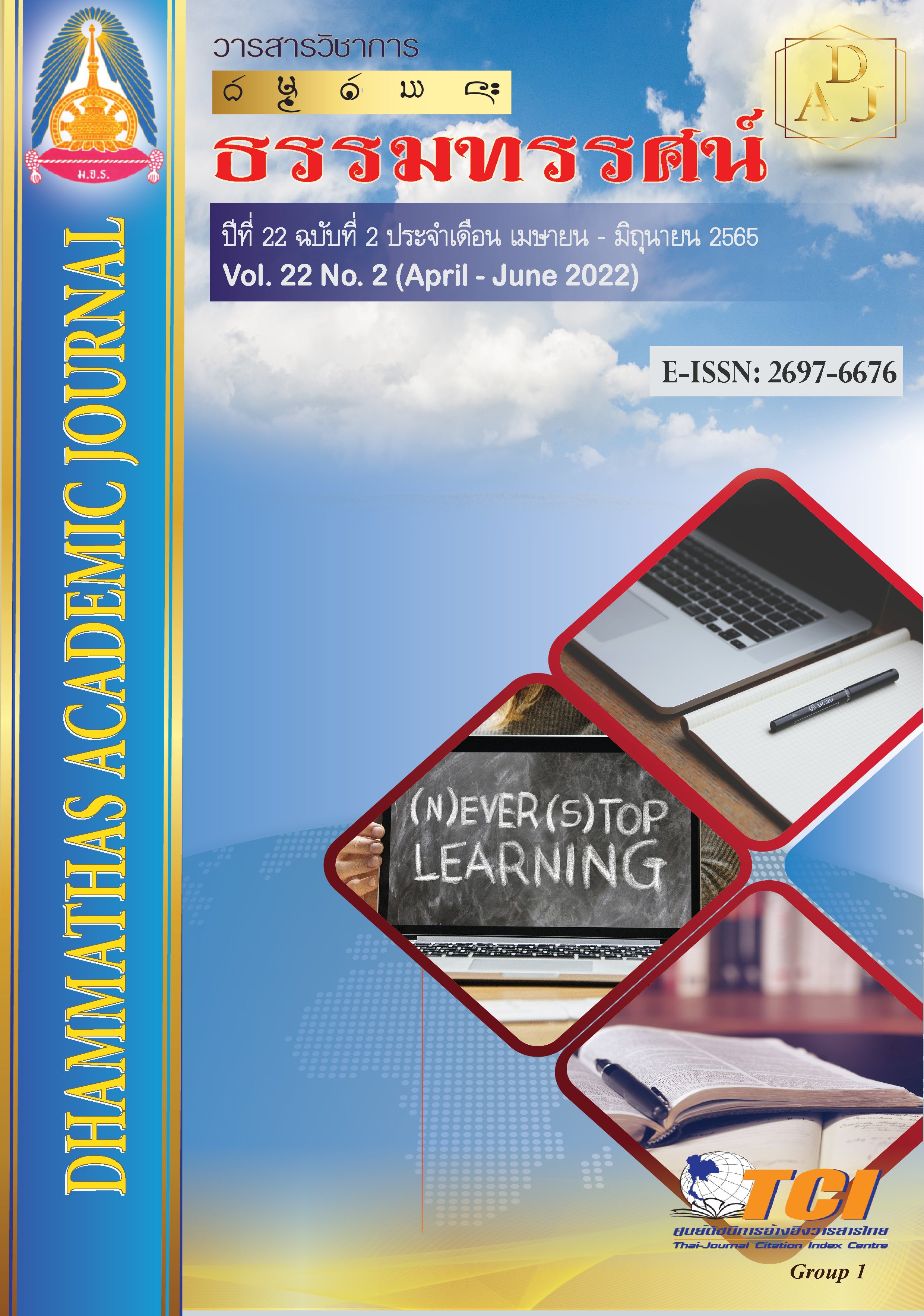The solution to Thai political behavior in Plato's view
Main Article Content
Abstract
The aims of this research were: 1) to study the concepts of political philosophy according to Plato’s view; 2) to study the political behaviors in Thailand; 3) to present the solution of Thai political behaviors according to Plato’s view. The tools of this qualitative research were the participatory observation form, and an in-depth interview form used to collect the data from 30 key informants including 10 national election committee members, 10 politicians and 10 voters. The obtained data were analyzed by the descriptive analysis based on the deductive method.
The research results were as follows:
1. Politics is an art of governance all the governors must know about; good governance is based on the wisdom of virtuous rulers and the wise who are capable of knowing the truth of the governance. It is called ‘the king of philosophers’, endowed with four virtues: intelligence, braveness, justice and knowing one’s won ability.
2. Ethical issues of Thai politicians today include: 1) corruption; 2) problems of using power and work based on their duties; 3) problems caused by a lack of political morality and ethics.
3. The educational ability is a key criterion in dividing the human class. The solution to the problem of political exploitation can be made by adhering in moral principles and solving the problems of ethical behaviors of politicians. The morality of the state is the same as the virtue of the individual person: 1) intelligence, 2) braveness, 3) knowing one’s won ability and 4) justice. The training and promotion of the citizens to have 3 basic principles: 1) honesty 2) good morals 3) good eating can be organized to have people obey the laws of the state and have responsibility for the role of each individual with three types of morality: 1) education, 2) law and 3) moral.
Article Details

This work is licensed under a Creative Commons Attribution-NonCommercial-NoDerivatives 4.0 International License.
เพื่อให้เป็นไปตามกฎหมายลิขสิทธิ์ ผู้นิพนธ์ทุกท่านต้องลงลายมือชื่อในแบบฟอร์มใบมอบลิขสิทธิ์บทความ ให้แก่วารสารฯ พร้อมกับบทความต้นฉบับที่ได้แก้ไขครั้งสุดท้าย นอกจากนี้ ผู้นิพนธ์ทุกท่านต้องยืนยันว่าบทความ ต้นฉบับที่ส่งมาตีพิมพ์นั้น ได้ส่งมาตีพิมพ์เฉพาะในวารสาร วิชาการธรรม ทรรศน์ เพียงแห่งเดียวเท่านั้น หากมีการใช้ ภาพหรือตารางของผู้นิพนธ์อื่นที่ปรากฏในสิ่งตีพิมพ์อื่นมาแล้ว ผู้นิพนธ์ต้องขออนุญาตเจ้าของลิขสิทธิ์ก่อน พร้อมทั้ง แสดงหนังสือที่ได้รับการยินยอมต่อบรรณาธิการ ก่อนที่บทความจะได้รับการตีพิมพ์References
เจษฎา ทองรุ่งโรจน์. (2547). พจนานุกรมศัพท์ปรัชญา อังกฤษ-ไทย. กรุงเทพฯ: โบแดง.
ประภาส แก้วเกตุพงษ์. (2564). ศึกษาแนวคิดปรัชญาทางการเมืองของเพลโต. วารสารวิชาการวิทยาลัยบริหารศาสตร์, 4(2), 183-200.
ปรีชา ช้างขวัญยืน. (2540). ปรัชญาแห่งอุดมการณ์ทางการเมือง. กรุงเทพฯ: จุฬาลงกรณ์มหาวิทยาลัย.
ฟื้น ดอกบัว. (2532). ปวงปรัชญากรีก. กรุงเทพฯ: โอเดียนสโตร์.
ราชบัณฑิตยสถาน. (2548). พจนานุกรมศัพท์ปรัชญา อังกฤษ-ไทย ฉบับราชบัณฑิตยสถาน. กรุงเทพฯ: ราชบัณฑิตยสถาน.
สมภาร พรมทา. (2548). พุทธปรัชญา มนุษย์สังคมและจริยธรรม. (พิมพ์ครั้งที่ 2). กรุงเทพฯ: ศยาม.
สุขุม นวลสกุล และโกศล โรจนพันธ์. (2539). ทฤษฎีการเมืองสมัยโบราณและสมัยกลาง. (พิมพ์ครั้งที่ 9). กรุงเทพฯ: มหาวิทยาลัยรามคำแหง.

